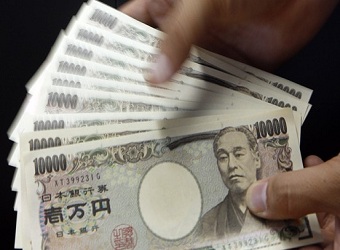The safe-haven Japanese yen gained broadly on Tuesday as a risk-averse mood spread through the broader markets, while the Australian dollar retreated to a three-week low after the country’s central bank raised concerns about domestic labor conditions.
Investor appetite for risk has been dulled this week by a number of factors, including an anxious wait for an upcoming meeting between U.S. President Donald trump and Chinese President Xi Jinping and a suspected suicide bombing in St. Petersburg, Russia.
“The dollar is feeling pressure against the yen from an interest rate spread point of view, with Treasury yields having fallen to one-month lows as Wall Street despite decent data,” said Shin Kadota, senior strategist at Barclays in Tokyo.
The dollar extended overnight losses and was down 0.4 percent at 110.440 yen after hitting 110.370, its lowest in a week.
The euro lost 0.5 percent and the Australian dollar fell 0.7 percent against the yen.
“This is a case of negative mood prevailing over other factors, like positive data, which would otherwise support the dollar,” said Masashi Murata, senior currency strategist at Brown Brothers Harriman in Tokyo.
“It is difficult to pinpoint the cause of the negative mood, but it won’t go away until immediate concerns towards the Trump administration are soothed. That might not take place until the U.S.-China summit is out of the way.”
Monday’s largely positive U.S. construction spending and manufacturing data affirmed a steady improvement in the economy, but did little to uphold Treasury yields and the dollar.
The euro was steady at $1.0668 after rising only about 0.2 percent overnight against the dollar, its advance tempered by a sharp decline in German bund yields driven by flight-to-safety following the bombings in St. Petersburg.
The Reserve Bank of Australia’s decision to keep its cash rate at a record low of 1.5 percent on Tuesday came as little surprise. But the Aussie fell after the central bank hinted that it was not too confident about domestic labor and inflation conditions.
The Australian dollar lost more than 0.3 percent to reach a three-week low of $0.7578, having declined steadily over the past two weeks from a four-month high of $0.7750.
The pound was a shade lower at $1.2475 after dropping 0.7 percent overnight on data showing British manufacturing lost momentum last month, the latest sign the economy may be running out of steam.
The ten-year Treasury note yield hovered near a one-month low of 2.321 percent plumbed overnight.
Source: Reuters


